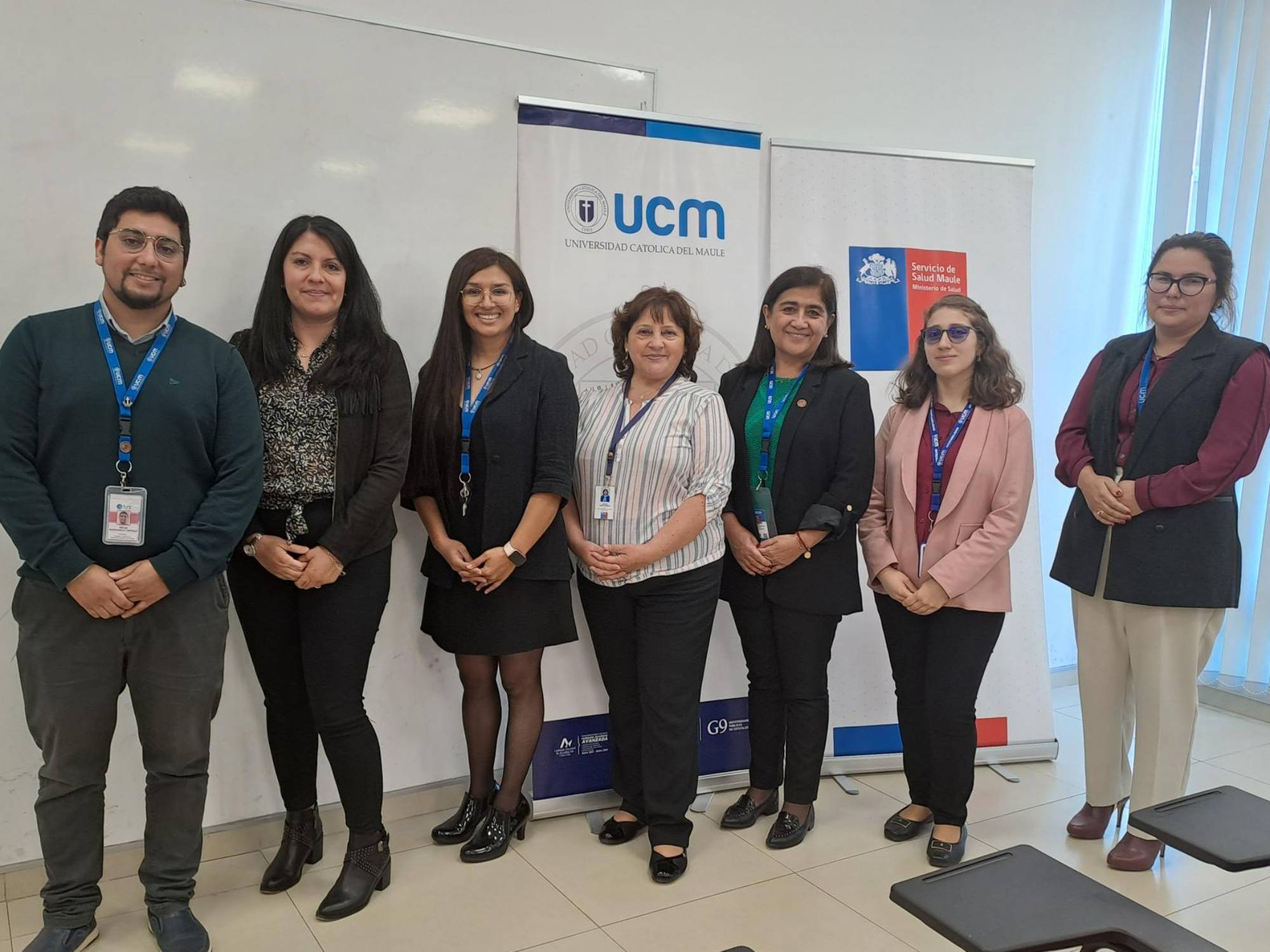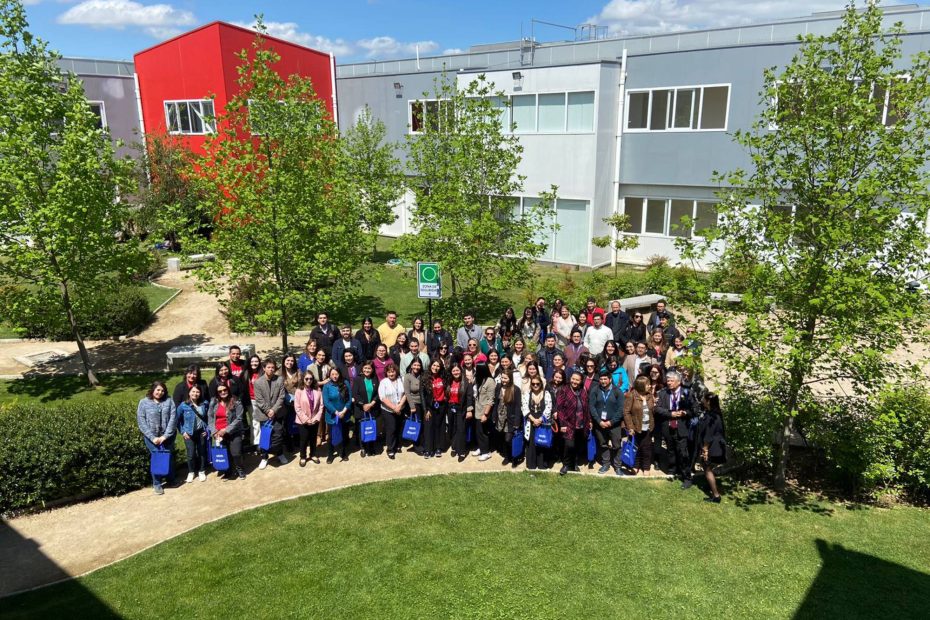The activity was organized by the Maule Health Service in collaboration with the four universities in agreement (UCM, UTAL, UA and UST) and focused on strengthening management in the Teaching Assistance Relationship (RAD), promoting a meeting space with the various training centers and RAD representatives of the Maule Region.
Last Wednesday, October 16, the UCM was part of the First Regional Conference on Teaching Assistance Relations (RAD), an activity carried out at the Pehuenche Campus of the U. of Talca and which included the participation of different regional actors from the area of the health.
The UCM Academic Vice-Rector, Dr. Esperanza Durán González, positively valued the activity, indicating that “this conference organized by the Maule Health Service is very important for the Teaching Assistance Relationship that we have with the hospitals, since it seeks to address issues that They involve our students in the health area and see problems that occur in the practice centers,” he said.
Likewise, the director of the UCM School of Medicine, Dr. Juana Maldonado Rojas, highlighted the importance of generating collaborative instances that allow analyzing how work is being done and what areas need improvement. “All this is in order to be able to offer the best training options for our students. We know and it is a reality that, in most universities and technical training centers, careers in the health area are increasing in number of students every day. However, the clinical fields are limited and the challenge is precisely to be able to generate the necessary spaces and places for our students as future health professionals,” he said.
Meanwhile, the head of the SSM People Development Department, Ivonne Roco Garrido, thanked the organizing team of the activity, which made it possible to generate a space for meeting and feedback between different actors. “On behalf of the Maule Health Service, we want to thank the universities for their collaboration in organizing this meeting and the assistance of different health institutions. We are very happy with the development of this day, where collaborative work allows us to strengthen ties, which is essential to join forces and face the challenges of the Teacher Assistance Relationship in our region,” he indicated.
For her part, the head of the Department of Teaching Assistance Relations (RAD) of the Regional Hospital of Talca (HRT), Catalina Soto Fuentes, pointed out the importance of collaborative work between the different training centers and clinical fields in the region. “It is essential that in our clinical fields we maintain agreements with accredited study houses, which is not insignificant. Educational institutions have their own accreditation processes, just like we do as health institutions.” Based on that, the professional indicated that communication is key so that both actors can obtain common improvements. For this reason, he pointed out that “to the extent that the quality of students we receive in clinical fields is better, the universities will be able to have a better quality clinical field,” he stated.
During the day, the topics discussed focused on work in clinical fields, mainly on good treatment, bidirectionality and the main management difficulties in hospital facilities. For this, work tables were established in which participants identified the main strengths and weaknesses in the Teacher Assistance Relationship and were able to propose strategies to promote positive treatment in the tutor and student dyad. In addition, it was discussed how bidirectionality is perceived in the teaching assistance relationship with the different actors involved.
Finally, Vice Chancellor Durán emphasized the relevance of alliances with health institutions with the graduation profile of UCM students. “As an institution, we have the challenge of continuing to advance in a permanent relationship with our clinical fields and generating links beyond agreements. This is what finally gives the seal to the professionals that we declare to train, integral, with a vocation for service, and for whom we are working,” he explained.

